- Home
- Catherine Coulter
Night Storm
Night Storm Read online
CATHERINE COULTER
Night Storm
To Diana Hill
You are an admirable woman. It is a great pleasure to be in your life.
Contents
Prologue
Alec touched his lips to his wife’s pale forehead, still…
One
Alec Carrick stood on the deck near the Dancer’s wheel…
Two
Alec stood on the deck of the Baltimore clipper and…
Three
The dinner was delicious. Alec, replete, sat back in his…
Four
“You’re a fine figure of a man.”
Five
Genny didn’t move. She felt oddly calm, as if the…
Six
“Papa?”
Seven
“My lord? Baron Sherard?”
Eight
The shopping expedition had gone quite well once Genny had…
Nine
“No,” he said slowly, staring down at her, “Satan wouldn’t…
Ten
“I’m going to the shipyard.”
Eleven
Genny loved the gentle rolling of the Pegasus beneath her…
Twelve
Her hands fluttered and she stalled, her eyes on that…
Thirteen
Genny wasn’t asleep. She was stunned at what had just…
Fourteen
Genny had thought about the fact that Alec and his…
Fifteen
“Shush, don’t cry. What’s wrong, love?”
Sixteen
Snugger was her first mate. He was short, very hairy…
Seventeen
Genny held her breath watching the barkentine lurch and shudder…
Eighteen
Genny stared down at him, nonplussed. “What did you say?”
Nineteen
Genny turned slowly to face him. Her fingers, busily unfastening…
Twenty
They landed in Southampton during the third week of December.
Twenty-one
Genny didn’t want to go out. She didn’t want to…
Twenty-two
“Ho! Alec! Good Lord, man, welcome home.”
Twenty-three
Alec’s memory did flood back, in an instant of time…
Twenty-four
“I mean it, Genny. Give your instructions to Mrs. MacGraff.
Epilogue
About the Author
Raves
Copyright
About the Publisher
Prologue
CARRICK GRANGE
NORTHUMBERLAND, ENGLAND
DECEMBER 1814
Alec touched his lips to his wife’s pale forehead, still sweat-damp. He straightened over her, feeling the distance between them that could never be crossed. It was too late now, too late to say the words that were choking in his throat. He shook his head. Finally he lifted her arms and crossed them over her chest. Her flesh was cool now.
Still, though, he wouldn’t be surprised if Nesta suddenly opened her eyes and looked at him, smiled at him, asked to see their son. She’d wanted a son so badly. His name would have been Harold. After the Saxton king who had fought and lost to William of Normandy.
Alec stared at her, hard, and thought, A child wasn’t worth your life, Nesta. Oh, God, I never should have filled you with my seed. Open your eyes, Nesta.
But she didn’t move. Her eyes didn’t open. His wife of five years was dead. And there was a scrap of humanity in another room that was alive. He couldn’t bear to think of it.
“My lord.”
At first Alec didn’t hear Dr. Richards’s low voice. Then, slowly, he turned to look up at his wife’s physician, a small man, foppish in his dress and, at this moment, sweating profusely in the hot room, his intricately tied cravat as limp as his hair.
“I am more sorry than I can say, my lord.”
Alec touched Nesta’s cheek. Her flesh was so soft, and now so cold. He rose and turned. He towered over the physician. He supposed he was doing it purposely. He wanted to intimidate, to make the man afraid of him, to make him tremble in his boots. He’d let his wife die. He looked at the dried blood on the physician’s hands and on the sleeves of his black coat and wanted to kill him.
“The child?”
Dr. Richards flinched at the harshness in Baron Sherard’s voice, but he said calmly enough, “She is apparently very healthy, my lord.”
“Apparently, sir?”
Dr. Richards’s eyes lowered. “Yes, my lord. I am truly sorry. I couldn’t stop the hemorrhaging. Your wife lost so much blood and she was so weak. There was nothing I could do, nothing medical science can do when this happens. I—”
The baron waved off the physician’s words. Three days before, Nesta had been laughing, enjoying herself immensely with her plans for Christmas festivities, despite her enormous bulk, her swollen ankles and the nagging backaches. Now she was dead. He’d not been with her when she’d died. The physician hadn’t called him. It had been very sudden, the man had said. So sudden that there hadn’t been time. Alec had no more words. He left his wife’s bedchamber, not looking back.
“He didn’t even get his heir,” said the midwife, Mrs. Raffer, as she methodically pulled a sheet over the baroness’s head. “Well, a gentleman can find another wife about anywheres, particularly a peacock swell like the baron. He’ll get his heir yet. Just see if he don’t. But daughters have to be birthed, too, poor little mites, else how could heirs come into the world?”
“Has he yet named the child?”
The midwife shook her head. “He hasn’t even visited the babe, not since looking at her right after her birth. She’s eating her head off, her wet nurse told me. Well, no telling, is there? Her mama sick and bleeding away her life, and the little scrap healthy as a ruddy stoat.”
“The baron was fond of his wife, I believe.”
The midwife merely nodded, waiting now to commence her task after the physician, that pompous good-for-nothing fool, took his leave. He felt guilty, as well he should. Hemorrhage! The baroness had been healthy as a brick. But Dr. Richards had encouraged her to eat and she’d gotten too heavy, her color too high, her blood too rich. What with the large child, the birth had taken too long and Dr. Richards had done naught but stand by her bed wringing his hands. Damnable old fool.
Alec Carrick, fifth Baron Sherard, ordered his stallion, Lucifer, saddled. He rode from the stables into the blowing snow. He was bareheaded. He wore only a black cloak.
“He’ll catch his death,” said Davie, the head stable lad at Carrick Grange.
“He’s frightful hurt,” said Morton, an underling whose main task was to muck out stalls. “The baroness was a nice lady.”
“He has his child,” David said.
As if that was the end to it, Morton thought. As if the baron didn’t have any feelings, as if he didn’t care that his wife lay dead. Morton shivered. It was bloody cold. He shivered again, but at the same time he was thankful. He wasn’t, after all, as cold as the poor baroness.
Alec returned to the Grange three hours later. He was, thankfully, numb. He couldn’t feel his fingers, he couldn’t furrow his brow, nor could he wiggle his eyebrows, and more important, he couldn’t feel the pain that was deep inside him. His old butler, Smythe, took one look at him and shooed away the footmen and the two maids. He grasped the baron’s arm and led him as he would a child into the dark wood-paneled library, where a blazing fire burned.
He rubbed the baron’s icy hands, all the while talking to him, scolding him as if he were a seven-year-old lad again. “Now I’ll fetch you a brandy. Just sit down here, that’s a good la—just sit. Yes, that’s right.”
Smythe handed him a brandy and didn�
�t move until the baron had swallowed all of it. “It will be all right, you’ll see.”
Alec looked up at the worn old face that held kindness and worry. “How can it be all right, Smythe? Nesta’s dead.”
“I know, my boy, I know. But the grief will pass and you’ve a daughter now. Don’t forget your little daughter.”
“I sat down here and listened to her screams. Even when she was exhausted, even when her voice was hoarse and raw, I could hear her. It’s so quiet now.”
“I know, I know,” Smythe said helplessly. “But, my lord, don’t forget your little daughter. I’ve heard her yelling like a little general for her supper. A right proper pair of lungs the little one has.”
Alec stared toward the curtained bow windows. “I don’t care.”
“Now, now—”
“I’m not in danger of becoming a likely candidate for Bedlam, Smythe. You can stop hovering over me.” Alec rose from his chair and walked closer to the fire. “My hands are biting now. I suppose that’s a good sign.” He fell silent, looking down into the flames. “I must write to Arielle and Burke, and tell them that Nesta is dead.”
“Shall I fetch you writing materials?”
“No. When I’ve warmed up, I’ll go to the estate room.”
“Dinner, my lord?”
“I think not, Smythe.” Alec stayed by the fire for another hour. He could flex his hands now and he could furrow his brow in a frown. But on the inside he was still numb.
The earth was so hard. It hadn’t crumbled under the grave diggers’ shovels. It had broken off in coarse clumps. The men had grunted at the task.
There would be no brilliant roses to place on Nesta’s grave. Only snowflakes, soft and white and cold, would blanket her coffin, and then the earth would cover it.
Alec stood silently watching the men shovel the black earth over her coffin. The Devenish-Carrick family burial plot covered the top of a wide ridge overlooking the Spriddlestone Valley. The ornate gravestones were intertwined with ivy, roses, and delphiniums. They were beautiful in the spring and summer, the vibrant colors of the flowers contrasting with the dark green of the ivy. In the winter, the pruned plants looked pitiful. Naked-branched horse chestnuts, poplars, and several weeping willows surrounded the perimeter of the site. The December winds whistled low and harsh through the trees. The Reverend McDermott had finished his eloquent eulogy and he, too, stood silent, waiting. All the Grange servants, the tenant farmers and their families, the shopkeepers from the village of Devenish, and representatives from all the local families were there, standing silently, waiting. For him, Alec realized. He was expected to do something. Tell them all to applaud? Tell them to go home now and get warm? Tell them to leave him alone?
“Alec.”
The Reverend McDermott had moved to him and spoken softly.
Alec looked into the old man’s faded blue eyes.
“It’s beginning to snow hard, Alec. It’s time to release the people.”
Release them. What a strange way to say it. Alec merely nodded and stepped back from the grave, a signal. One by one, people came to him, murmured condolences, and moved on. It took a long time, a very long time.
It was bizarre, Alec thought later as he stood alone in his library. The last of the guests had eaten their fill, conversed in subdued voices, and left, thank God. It was bizarre because he simply didn’t feel anything. The numbness hadn’t left him. It had invaded and stayed. It continued with him during the next three days.
On the third day, Nesta’s half sister, Arielle Drummond, and her husband, Burke Drummond, Earl of Ravensworth, arrived at the Grange. Arielle was pale, her eyes red from crying. Burke was stiff and looked as withdrawn as Alec felt. He thanked them sincerely for coming.
“I’m so sorry we missed the funeral,” Arielle said, holding Alec’s hand tightly in hers. “There was a snowstorm and we couldn’t leave Elgin-Tyne. I’m so sorry, Alec, so sorry.” Arielle had thought of Alec Carrick as the Beautiful Baron, a silly name, but apt. Only now he looked gaunt, the flesh of his face pulled tightly over his bones. His brilliant blue eyes, as light as a summer sky when he laughed, or as deep as the North Sea when emotion held him, were now dull, very nearly opaque. Empty. His clothes were immaculate, certainly, but he looked thin. And it seemed to Arielle that he wasn’t really with her and Burke. He spoke to them, responded to their questions, accepted their grief, but he wasn’t there. If Arielle had wondered how Alec had felt about Nesta before, she was left with no doubts now. Perhaps he hadn’t loved Nesta with a burning passion, but he’d cared for her very much. She burst into tears at his pain, at her own.
“Is the child well?” Burke asked, holding Arielle close to him.
Alec looked uncertain, shaking his head.
“Your daughter, Alec. Is she well?”
“Oh. I suppose. No one has told me otherwise. Let me call Mrs. MacGraff. She will see to your comfort. Please stay. The storm will probably continue for another week. Nesta’s grave is covered with snow now. I’ll take you there. I’ve commissioned a marble gravestone. It isn’t yet completed. Ah, here is Mrs. MacGraff. Please don’t cry, Arielle. Burke, thank you again for coming.”
Arielle got hold of herself sometime later in their bedchamber. “He’s in shock,” she said to her husband. “And I had to start crying. I’m sorry, Burke. Poor Alec. And the child. We must see her. What is her name?”
The child hadn’t yet received a name. Alec looked perplexed when Arielle mentioned it to him over dinner that evening. “She must have a name, Alec. She must be christened and soon.”
“Is she ill?”
“No, certainly not, but it must be done. Did Nesta decide upon a name for her?”
“Harold.”
“And for a girl?”
Alec shook his head.
“Have you any wishes in the matter?”
Alec didn’t say anything. He looked thoughtful as he sipped at his wine. The child was alive, well taken care of. God knew, he could hear her yelling her head off. Smythe was right about the strength of her lungs. And now these questions. Who cared? “Hallie,” he said finally, shrugging. “Hallie is her name. It’s close to Harold. I think Nesta would have liked that.”
Still Alec didn’t visit his daughter. The day before Arielle and Burke were due to leave Carrick Grange, they broached the subject with their host.
“Arielle and I have discussed this thoroughly, Alec. If it is all right with you, we will take Hallie back to Ravensworth with us.”
Alec stared at him. “You want to take the child to Ravensworth? Whyever for?”
“You are a man, Alec. At least I am her aunt. I would care for her and love her, as would Burke. There is nothing for her here, save a nurse to see to her needs. A child needs love, Alec, and care.”
He looks bewildered, Arielle thought, staring at her brother-in-law. He doesn’t seem to understand.
Alec said slowly, vaguely, “I can’t give my child away.”
“You have no reason to feel as if you’re not behaving responsibly in this,” Burke said. “You are a single gentleman, a widower. You wish, do you not, to return to your shipping? To captain one of your own merchant ships again? What is your favorite? Oh, yes, the Night Dancer.”
“Yes, a barkentine and a wonderful vessel.” Alec nodded, adding, “That is what I told you, isn’t it? There is nothing more to do here. It is so very quiet, you know. I don’t wish to remain at the Grange much longer. My steward, Arnold Cruisk, is a competent fellow and will handle the Grange business. I trained him. He will send me reports. He can be trusted.”
“You can hardly take a babe on board ship with you to God knows where,” Arielle said. “She needs stability, Alec, a home, and people to care for her. Burke and I can do that.”
“She’s part of Nesta, you know.”
“Yes, we know.”
“I must think about it. It doesn’t seem right—to leave my child and—well, I will go riding now and think about it.”
&n
bsp; Arielle wanted to tell him that it was snowing again, but she held her peace. “He needs time,” Burke said quietly to her after Alec had left the drawing room. “It is difficult.”
That evening while Alec was dressing for dinner, he heard a baby squalling from overhead—sharp, piercing cries that made him jerk about and mangle his cravat. The crying didn’t stop; it grew louder. He looked in the mirror, pulled off the cravat, and flung it down. He closed his eyes. What was the matter? Why was the babe crying as if her life were in danger?
“Stop it,” he whispered. “For God’s sake, be quiet.”
The babe was yelling to bring the Grange down.
Alec couldn’t bear it. He strode from his bedchamber down the wide corridor to the stairs that led to the third-floor nursery. It was cold, he thought, as he stomped up the stairs. The babe’s crying sounded raw now as he drew closer.
He flung open the nursery door. There was Mrs. Mac-Graff, his damned housekeeper, holding the babe, rocking her, trying to quiet her.
“Where the hell is the wet nurse?”
Mrs. MacGraff whirled about. “Oh, my lord, Nan had to return to her home. Her own child is ill and her family—well, it’s a very tedious story, actually, but there’s no food for Hallie and she’s hungry.”
Alec cut her off. “Give her to me. Go downstairs and tell Smythe to have Nan fetched immediately. Have her bring her child back here to the Grange. For God’s sake, go.”
Alec took his daughter. For an instant he was terrified. She was so tiny. Her cries were so loud that his ears hurt. Her small body was convulsed with yells. He knew enough to support her neck. He didn’t want to, but at last he forced himself to look at her, really look. Her face was screwed up and blotched red. She had a thick head of pale blond hair. Exactly the color of his hair when he’d been little, so his mother had fondly told him many times.

 The Cove
The Cove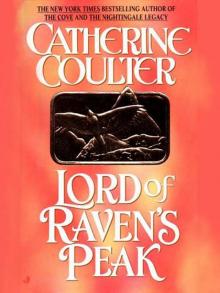 Lord of Raven's Peak
Lord of Raven's Peak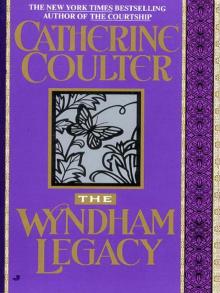 The Wyndham Legacy
The Wyndham Legacy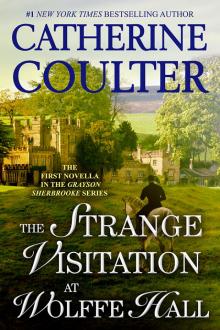 The Strange Visitation at Wolffe Hall
The Strange Visitation at Wolffe Hall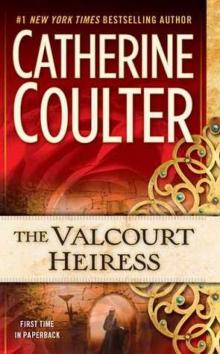 The Valcourt Heiress
The Valcourt Heiress Bombshell
Bombshell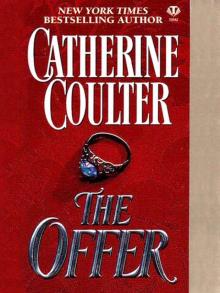 The Offer
The Offer The Edge
The Edge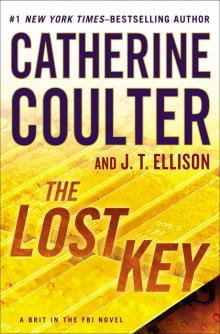 The Lost Key
The Lost Key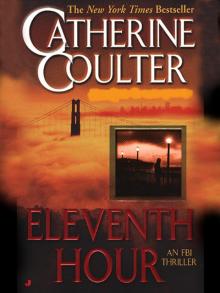 Eleventh Hour
Eleventh Hour Blindside
Blindside Devil's Daughter
Devil's Daughter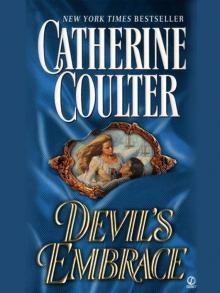 Devil's Embrace
Devil's Embrace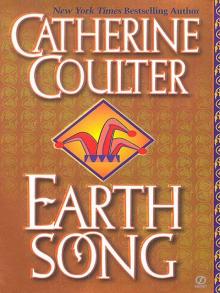 Earth Song
Earth Song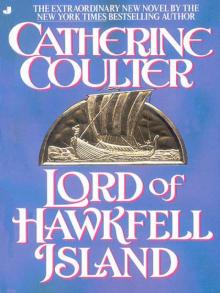 Lord of Hawkfell Island
Lord of Hawkfell Island Calypso Magic
Calypso Magic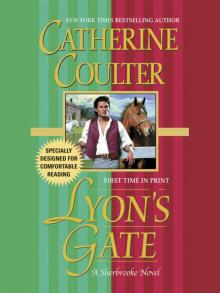 Lyon's Gate
Lyon's Gate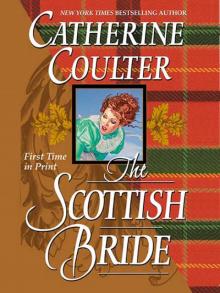 The Scottish Bride
The Scottish Bride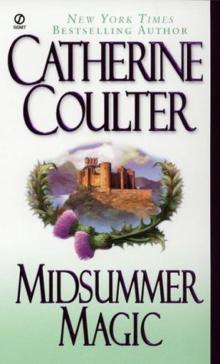 Midsummer Magic
Midsummer Magic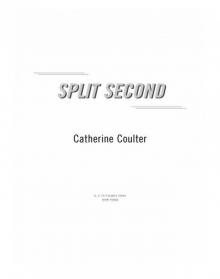 Split Second
Split Second Enigma
Enigma Blowout
Blowout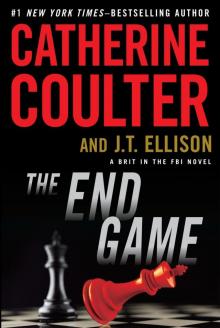 The End Game
The End Game Double Take
Double Take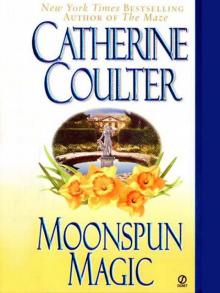 Moonspun Magic
Moonspun Magic The Courtship
The Courtship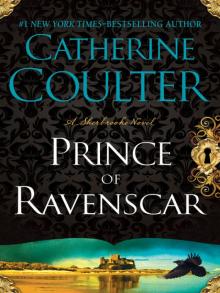 Prince of Ravenscar
Prince of Ravenscar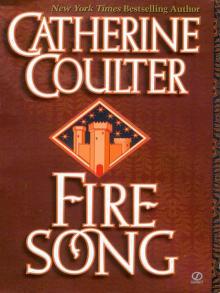 Fire Song
Fire Song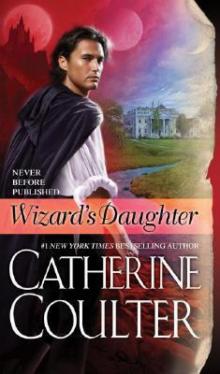 Wizard's Daughter
Wizard's Daughter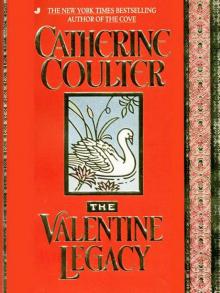 The Valentine Legacy
The Valentine Legacy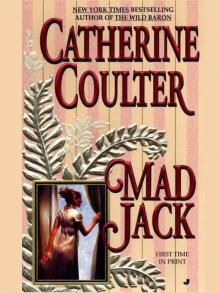 Mad Jack
Mad Jack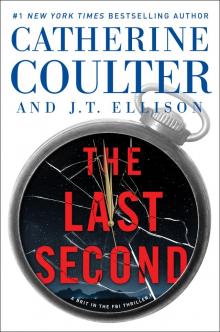 The Last Second
The Last Second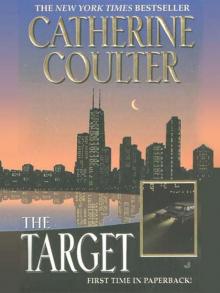 The Target
The Target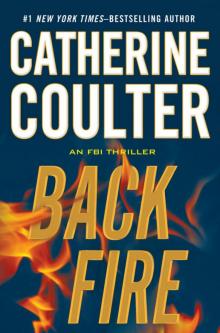 Backfire
Backfire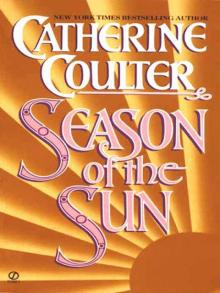 Season of the Sun
Season of the Sun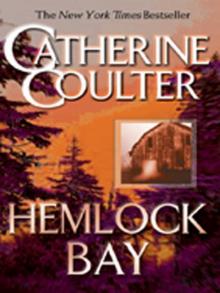 Hemlock Bay
Hemlock Bay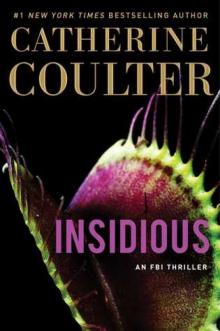 Insidious
Insidious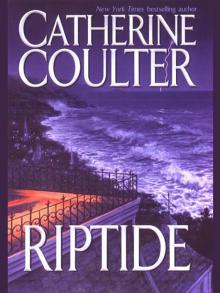 Riptide
Riptide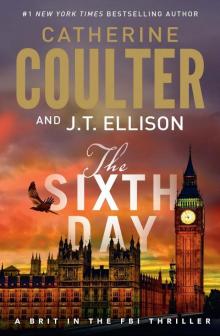 The Sixth Day
The Sixth Day Secret Song
Secret Song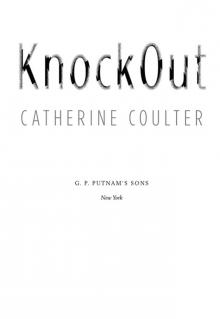 KnockOut
KnockOut Jade Star
Jade Star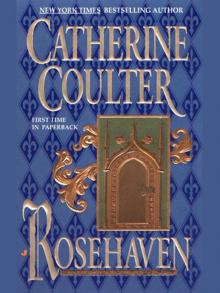 Rosehaven
Rosehaven The Hellion Bride
The Hellion Bride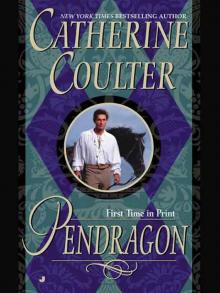 Pendragon
Pendragon Vortex
Vortex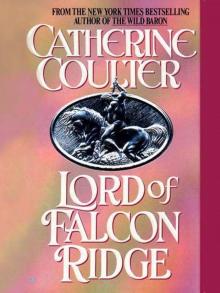 Lord of Falcon Ridge
Lord of Falcon Ridge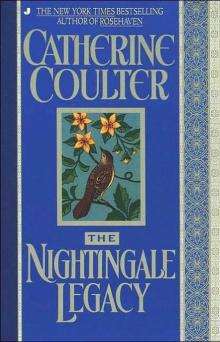 The Nightingale Legacy
The Nightingale Legacy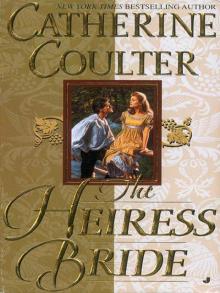 The Heiress Bride
The Heiress Bride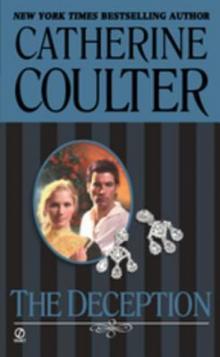 The Deception
The Deception The Maze
The Maze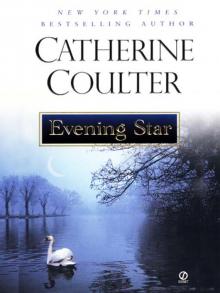 Evening Star
Evening Star Wild Star
Wild Star The Final Cut
The Final Cut Paradox
Paradox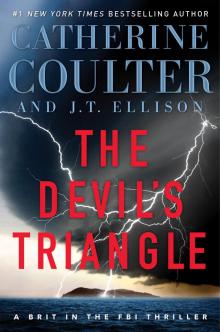 The Devil's Triangle
The Devil's Triangle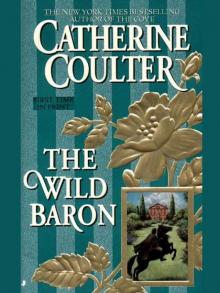 The Wild Baron
The Wild Baron Point Blank
Point Blank Labyrinth
Labyrinth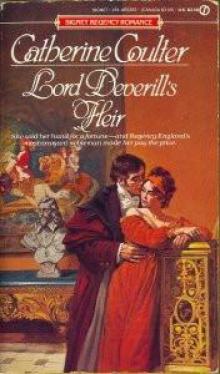 Lord Deverill's Heir
Lord Deverill's Heir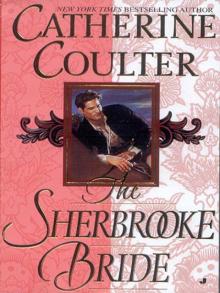 The Sherbrooke Bride
The Sherbrooke Bride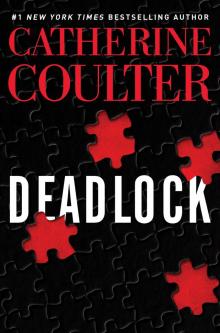 Deadlock
Deadlock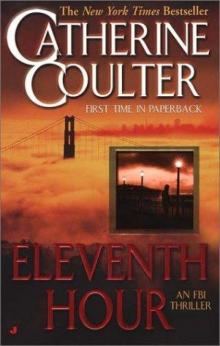 Eleventh Hour f-7
Eleventh Hour f-7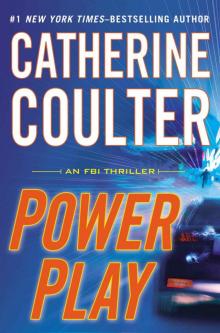 Power Play (An FBI Thriller)
Power Play (An FBI Thriller)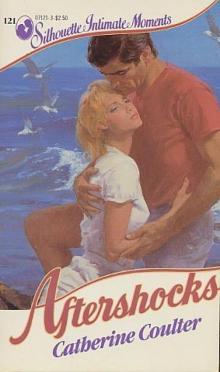 Aftershocks
Aftershocks Sherbrooke Twins tb-8
Sherbrooke Twins tb-8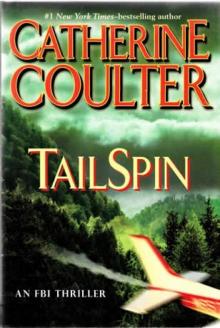 Tail Spin ft-12
Tail Spin ft-12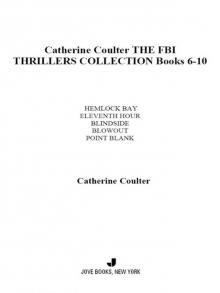 The FBI Thrillers Collection
The FBI Thrillers Collection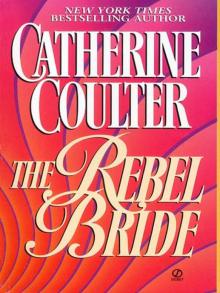 The Rebel Bride
The Rebel Bride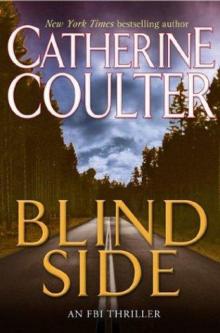 Blindside f-8
Blindside f-8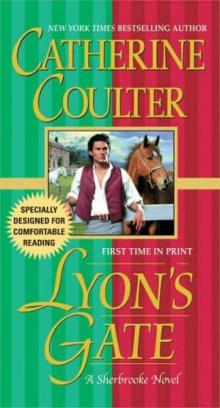 Lyons Gate tb-9
Lyons Gate tb-9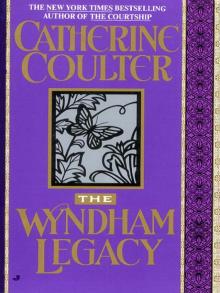 Wyndham Legacy
Wyndham Legacy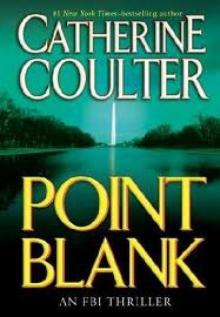 Point Blank f-10
Point Blank f-10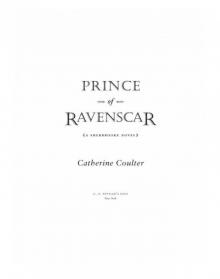 The Prince of Ravenscar
The Prince of Ravenscar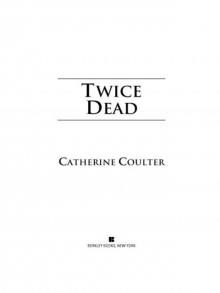 Twice Dead
Twice Dead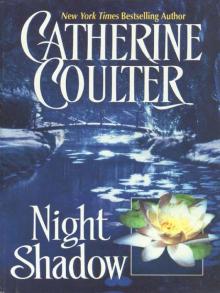 Night Shadow
Night Shadow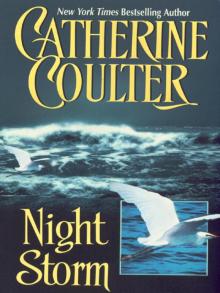 Night Storm
Night Storm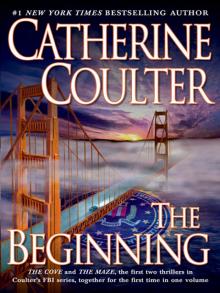 The Beginning
The Beginning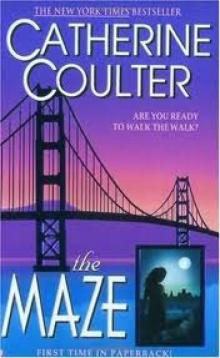 The Maze ft-2
The Maze ft-2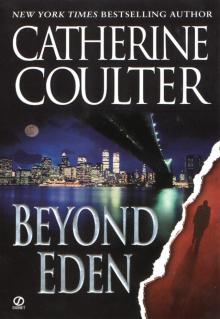 Beyond Eden
Beyond Eden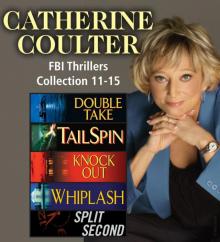 The FBI Thrillers Collection: Vol 11-15
The FBI Thrillers Collection: Vol 11-15 FALSE PRETENSES
FALSE PRETENSES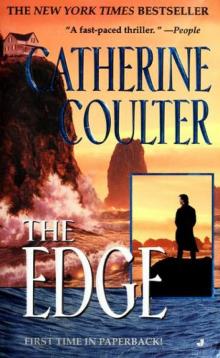 The Edge f-4
The Edge f-4 Bombshell (AN FBI THRILLER)
Bombshell (AN FBI THRILLER)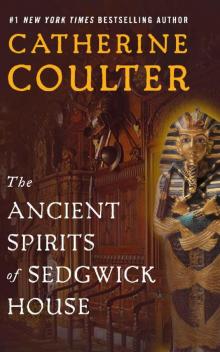 The Ancient Spirits of Sedgwick House (Grayson Sherbrooke's Otherworldly Adventures Book 3)
The Ancient Spirits of Sedgwick House (Grayson Sherbrooke's Otherworldly Adventures Book 3)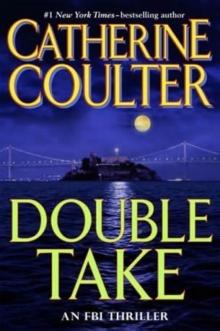 Double Take ft-11
Double Take ft-11 The Heir
The Heir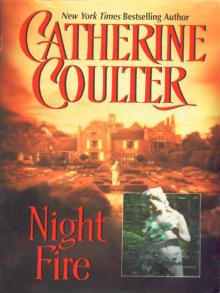 Night Fire
Night Fire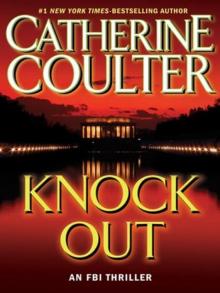 KnockOut ft-13
KnockOut ft-13 Hemlock Bay f-6
Hemlock Bay f-6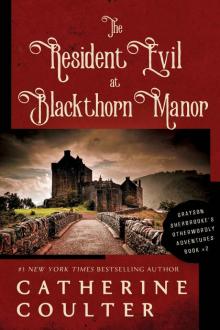 The Resident Evil at Blackthorn Manor (Kindle Single) (Grayson Sherbrooke's Otherworldly Adventures Book 2)
The Resident Evil at Blackthorn Manor (Kindle Single) (Grayson Sherbrooke's Otherworldly Adventures Book 2)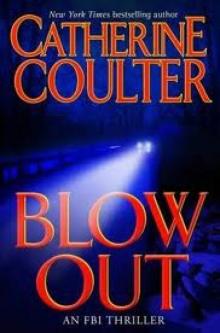 Blowout ft-9
Blowout ft-9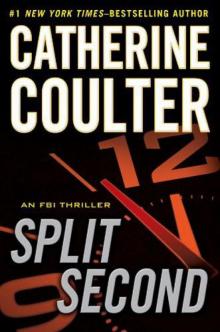 Split Second f-15
Split Second f-15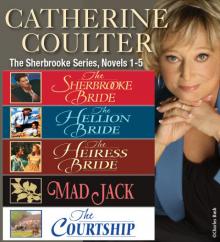 The Sherbrooke Series Novels 1-5
The Sherbrooke Series Novels 1-5 Impulse
Impulse Paradox (An FBI Thriller Book 22)
Paradox (An FBI Thriller Book 22)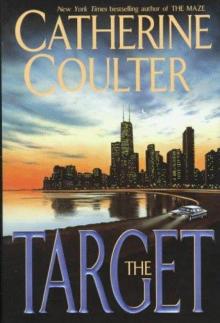 The Target f-3
The Target f-3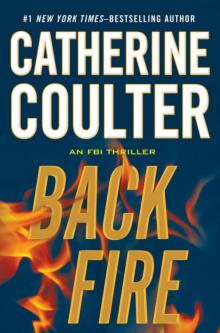 Backfire fst-16
Backfire fst-16 Born To Be Wild
Born To Be Wild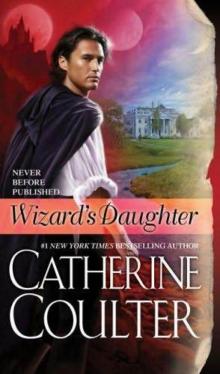 Wizards Daughter tb-10
Wizards Daughter tb-10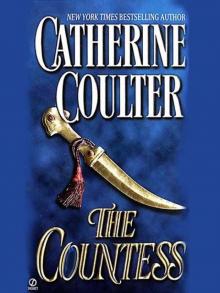 The Countess
The Countess